By Sharon McInnes, Gabriola Island, BC
I know the Spotted Towhee squawking in the back yard isn’t actually talking to me. Still, I feel like he is, and can’t help but talk back. “Hello. What’s up?” Maybe it’s a character flaw, I don’t know.
Same with the Steller’s Jays who wait for peanuts every morning, quite patiently, on the back deck. “Good morning,” I say, as if these visitors have come to greet me, and not my peanuts. Sometimes they do make a funny little noise, one that seems rather un-jay like, and I wonder.
Some birds can ‘talk’, of course, if by ‘talk’ you mean mimic. Ravens, for example, can even learn to mimic the human voice. (You can watch Terry the Raven “talking”, here, if you’re so inclined: http://www.youtube.com/watch?v=-ZyBNWVD70w)
And mockingbirds, starlings, crows, Northern shrikes, gray catbirds, and magpies mimic other birds as well as sounds in their environment. In recent years the blackbirds of Somerset England stirred up a lot of attention by incorporating all kinds of new sounds into their repertoire, sounds like ringing cell phones that no one ever answers (how annoying is that?) and ambulance sirens and car alarms. Good grief.
Are these just blackbirds with a wicked sense of humour? Or maybe they’re bored, needing a little variety in their staid British lives? Or could it be that they simply enjoy learning? The more I learn about wild birds, the less certain I am about any of the many theories that abound. Whatever their motivation, though, the Somerset blackbirds may be, inadvertently, setting themselves up as desirable mates, avian Lotharios. Female blackbirds, after all, much prefer males with experience, and in the world of blackbirds (and many other birds) song variety relates to maturity which relates to experience. So the more sounds a blackbird has in his repertoire, the more attractive he is as a mate. (Makes sense to me. Certainly, I’ve heard of lots of crazier ways to pick a mate.)
Other city birds are also responding their environments in unique ways. According to the work of Hans Slabbekoom of the Netherlands, Little Greenbuls, Great Tits, and European Blackbirds are changing the sound frequency of their calls in order to be heard above the din of the city.
And scientists at the University of Sheffield have discovered that, after millennia of singing at daybreak and onwards, some European Robins living in big cities have begun to sing only at night!
Why? Because it’s just too hard to make themselves heard during the day above the din of vehicles and people. And according to a study at the Berlin Free University (now there’s a concept) nightingales in that city now sing louder on weekday mornings than on weekend mornings when the streets are quieter.
But it’s not just the songs of birds that are being affected by us humans, it’s also their stress levels. Birders who use smartphone apps in the field may be doing the birds they love a serious disservice, according to Graham Madge of the Royal Society for the Protection of Birds in England. He writes: “… when birds hear their song played over and over again, they are likely to think it’s a rival male encroaching on their territory and fly out to see what’s going on. While that might make for a great photo, it also means that the nest is unprotected and vulnerable and the bird is stressed.” Especially during nesting season, when the chores never end (building the nest, brooding and feeding the babies, eating and preening, keeping the nest clean, watching for predators, and on and on) the last thing a wild bird needs is the stress of thinking some other bird is after its territory!
But back to the Spotted Towhees and Steller’s Jays in my back yard for a moment. I wonder now if my talking back or morning greeting has unintended negative effects. Does it mean something completely different to the bird than it does to me? Does the towhee hear a threat? Does the jay hear a message that confuses and stresses him? Should I just keep my big trap shut?! I sure hope that’s not the case because, honestly, I doubt I can.



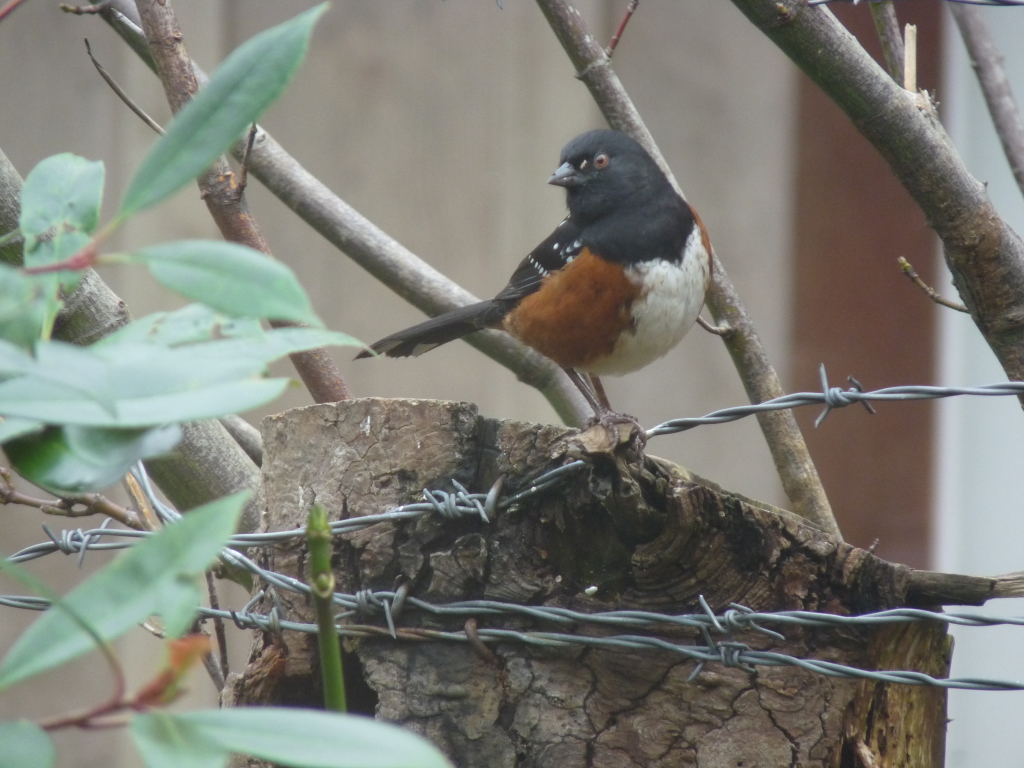
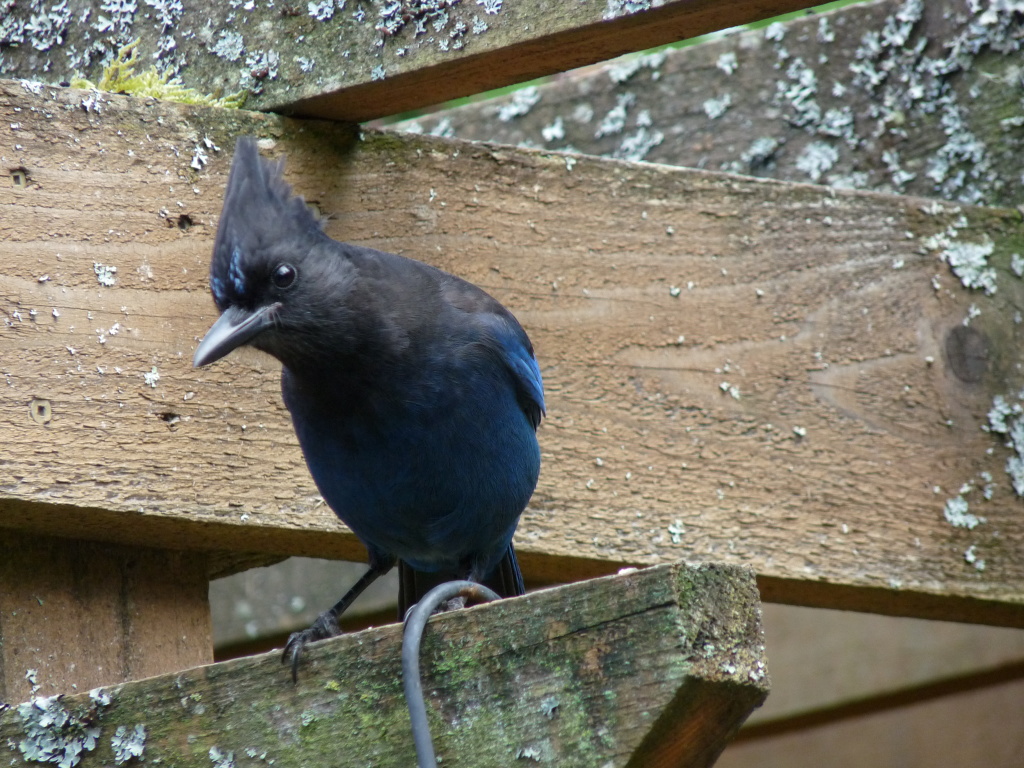
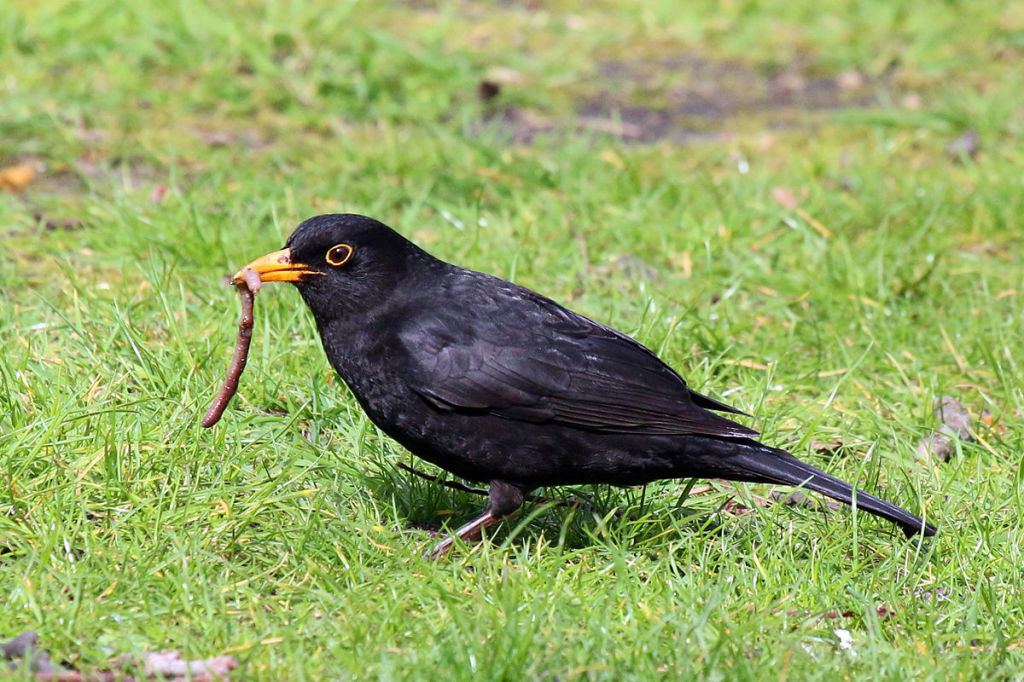
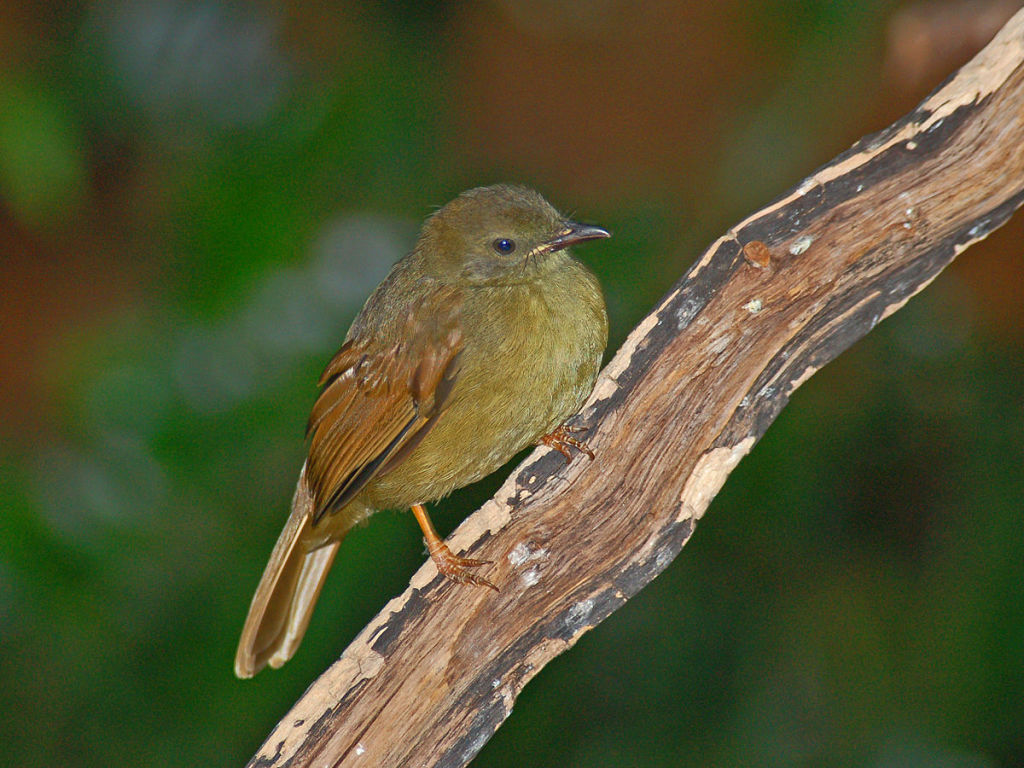
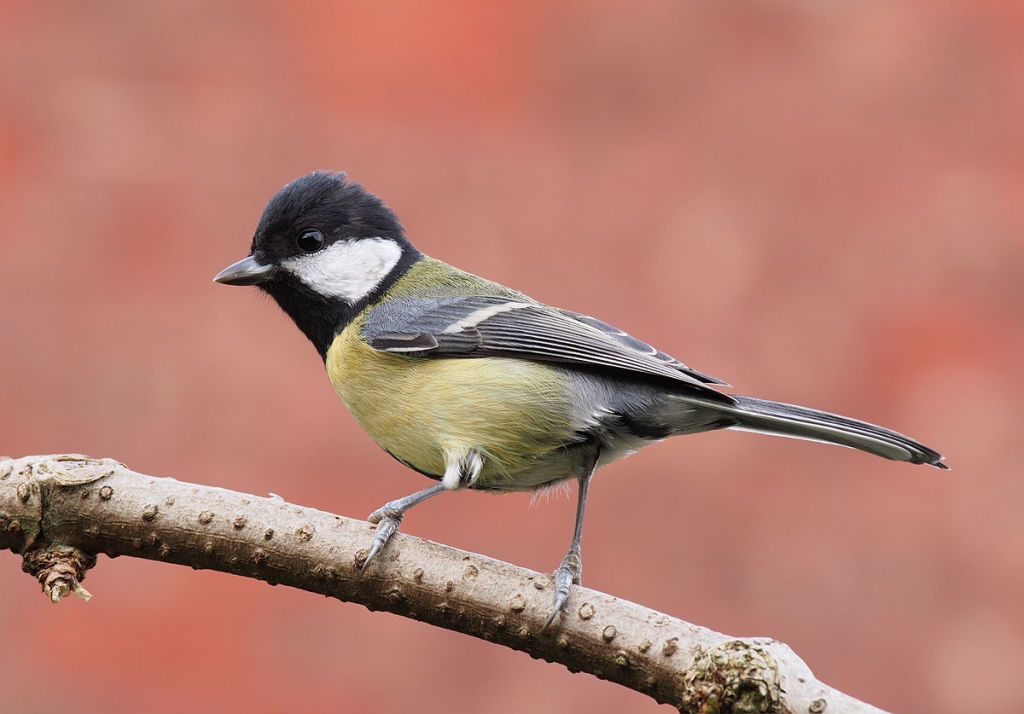
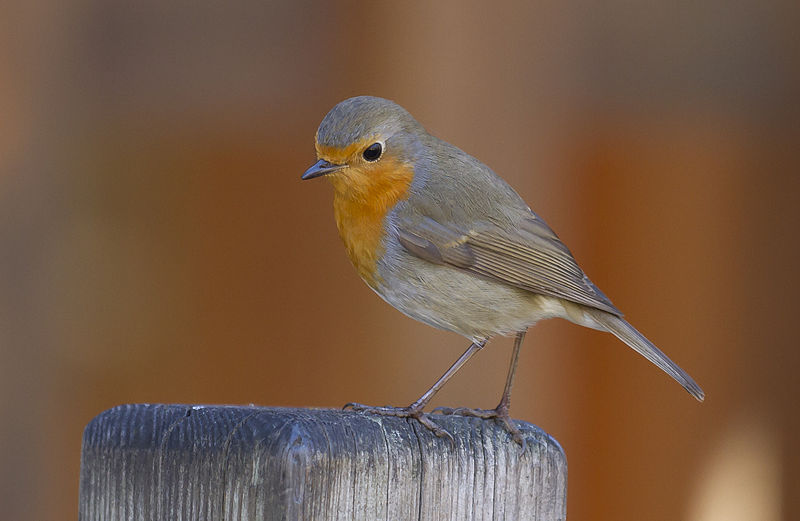
Hi; Dear : Mam/Sir
Really, The Photos , One More Beautiful the Other One !
Thanks
Sincerely Yours : Amir . F